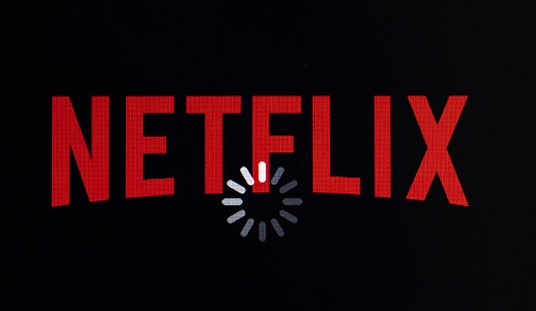I have to say I didn’t know what to expect when I attended “Does God Love Women Who’ve Had Abortions?” at Netroots Nation. It seemed odd to even have a panel discussing God at an event for the same people who booed God at their convention. I was really hoping that, at the least, they wouldn’t mislead women on this issue. To be clear, God absolutely does love women who’ve had abortions. The crucifixion of Jesus Christ and his subsequent resurrection were precisely to ensure that sin does not keep us separated from God. Throughout the panel it was made clear that God loves women who’ve had abortions, although I never heard it said outright; I was a little late so maybe they opened by addressing the question. Unfortunately, the answer to that question was about the only thing the panelists did get right.
When I arrived, panelist Carolyn Meagher (who isn’t sure she buys the resurrection story!), of First Congregational United Church of Christ (a self-described progressive, inclusive, spiritually alive servant community), was speaking about how churches seek to keep women down. She called it “Kitchen, Church, Kids” which she for some reason shortened to KKK and then equated with Nazi Germany. So to recap, five minutes into the panel the traditional church had been compared to Nazis. We were obviously at the start of an interesting ride. Meagher went on to explain that women were getting into trouble “bucking” their traditional role and she stated that, in doing so, women were committing a sin; something I have never heard in any church I’ve attended but I guess progressives know better?
Continuing the discussion, Muslim panelist Kashif Syed (who started by clarifying he has no interest in the concept of sin) said that sin falls disproportionally on young people and women; that the system targets certain people for oppression. That God would target certain people to oppress them is so insanely out of touch with the truth taught in the Bible that it is dangerous. The Bible clearly states in Romans 3:23 that “all have sinned and fall short of the glory of God.” We are born with the disease of a sinful nature and only the saving grace of Christ can cleanse us of it. Everyone struggles with sin, there is no disproportion. A reading of the Ten Commandments alone shows that probably everyone reading now, and me as I write, has struggled with sin since we woke up this morning. Sin is the oppressor – it convinces people like Syed that God wants to keep him down. Syed borrowed from Martin Luther King Jr., saying that according to German theologian Paul Tillich, “sin is separation.” While most of us understand that sin is separation from God, Syed explained it to mean separating ourselves from each other is sinful. And in his worldly view, not approving of everything anyone wants to do causes separation.
The twisting of God’s Word went on through the next panelist, Amber Phillips, who also started with the caveat that she had no interest in sin. In her opinion, (Note: This entire panel was about the panelists’ feelings, not any factual or Biblical truth) the concept of sin wasn’t created fairly; an interesting view for a self-professed Christian to carry. Phillips used an example from her childhood, in which her mother couldn’t afford baby formula so she stole it. Of course in Phillips view, her mother was justified in stealing because, and I may be paraphrasing, God just didn’t understand that her mother needed to do it because God didn’t create a fair world. It’s a mistake that many Christians make – not trusting God to provide. We usurp any blessing He may have in mind by taking things upon ourselves. Unfortunately, her mother’s example led Phillips to believe what so many believe today: Not only that God won’t provide but, as she stated next, the Word isn’t updated for today. As if God was so small that He couldn’t anticipate the events in the world He created. “Oh you were poor?” “No one has ever been through that before!” The Bible doesn’t say anything about… oh wait, yes it does.
Next up was Michelle Martinez, who began by stating (surprise!) she doesn’t like to talk about sin because it brings up too much conflict. As a Christian, she believes in karma. I think we’re done here.
The moderator, Emma Akpan, interjected that she thought it was interesting to look at who society says is sinful, which I thought was interesting too considering society doesn’t define sin. But we clearly weren’t talking about God’s thoughts in this panel so she asked the panelists to expand on their thoughts about who the sinful ones are in our society.
Not exactly addressing the topic, Phillips opened with an example of Joe Biden’s position on Anita Hill and how he has since changed his mind. Phillips stated, “Sometimes you are on the wrong side of history.” Seriously. She said that. She continued that sometimes people make mistakes but then they grow and learn from them, like when a Republican turns Democrat.
Carolyn Meagher chose to share the stories of two Indian women who have gone to jail for killing their children in the womb; not something anyone in the pro-life movement has suggested, but I’m sure she knows how fear of suggestion works. One woman lost her child while attempting suicide, which Meagher defined as a sin. So depression is a sin to Meagher but not baby murder. The other woman bought an abortifacient online, which Meagher said was her sin but made sure to say probably didn’t affect the baby because the pregnancy was farther along than the mother realized. The baby was born stillborn. I’m sure the abortifacient had nothing to do with it. In discussing their stories, however, Meagher did make a point that was worth noting. She called their situations, “bad birth outcomes.” It was my first inkling that Meagher was the more dangerous of the bunch.
Akpan, following Meagher’s lead, asked the panel to then discuss the importance of language when addressing the topic of abortion to different populations (voters) and how using your religious background can help people be more comfortable with, again paraphrasing, the lies you are trying to sell.
Phillips declared that more organizing is definitely needed in the South, where states like Texas, Louisiana and North Carolina are anti-choice. Noting that other panels at Netroots were also dealing with organizing in the South, Phillips shared an important aspect of getting Southerners on your side: You gotta know your church stuff! So before you try to talk to them about “reproductive health,” make sure to hit the offering and greet the pastor. They’ll never see you coming! Phillips said that growing up, she learned about helping others through the important work her church did – giving food to the poor for Thanksgiving and helping her sister when she got pregnant by giving her diapers and clothing. I had to wonder if they gave her sister formula… Showing a complete lack of knowledge about the founding of Planned Parenthood, Phillips claimed that Republicans were first to use the church, using black ministers to get their parishioners to go along with what the Republicans wanted. Syed noted as well that it is of the utmost importance to organize at religious sites whose population is largely ethnic and/or immigrant. If you can just reach one, Martinez said, they will all talk to each other.
Finally, the question and answer period came and a woman close to me wanted to know, as a Catholic, how the issue of conscience fit into what the panelists’ believed. Obviously struggling to answer, Meagher stated that a person’s moral autonomy is who they are in their faith. “Speaking as a Christian,” Meagher said that after Jesus was when the whole “pleasure is sinful and women should be helpers” stuff really took off and, because of that, women have lost their individual autonomy. Using the story of how Jesus dealt with the adulterous woman, Phillips said she believed that Jesus showed respect to the woman’s autonomy and that free will must be respected. I must have missed the part where Jesus told the woman it was ok to keep sinning. Perhaps my favorite line of the entire panel, and found within a discussion on autonomy no less, was what Syed said next, making reference to Hobby Lobby:
We really need to be careful about how we let other people practice their own religion.
To address the stigma of abortion, Phillips pointed out the work of the 1 in 3 campaign, which plays off the fact that 1 in 3 women will have an abortion in her lifetime. The campaign seeks to tell the stories of post-abortive women with the ultimate goal of normalizing killing children in the womb. For Phillips, it was a campaign she thought Toni Braxton should have been exposed to when she revealed that she believed her autistic child was punishment from God for a previous abortion. In Phillips words, “Your children are not a mark of sin from God.” It pains me to know that Phillips understands that children are not a punishment or marks of sin, yet she supports the abortion industry who openly kills children conceived in rape and disabled babies.
My suspicion about Meagher was confirmed at the close of the panel. Democrats have a habit of changing their language when the current language is found out by the majority. In other words, once people understand they are talking about killing babies they need to use different words – as if saying it another way makes it something different. So in ending, Meagher reminded the audience that the term “reproductive justice” should be used instead of prochoice. In that way they can justify baby murder as a human right.
My biggest takeaway from “Does God Love Women Who’ve Aborted?” was that God’s truth doesn’t enter into the discussion for progressives. Like every other subject for liberals, it is wholly about what they feel. And if they don’t like it, it’s not good. The label of sin is not good because they don’t like it. They don’t believe abortion is a sin and they don’t want women who’ve aborted to be called sinners. In fact, abortion is a sin and women who’ve aborted are sinners. Also in fact, we are all sinners and God loves all of us.
Other than that, the panel discussion was about how to convince religious people that abortion is ok. The modus operandi is to use the church, in the tradition of Planned Parenthood founder Margaret Sanger, and to change the terminology so people don’t know what you are up to.
It was sad to see a group of people lead others so astray as to what God’s truth really is. It was also sad that they were so focused on their feelings and how to organize that they seemed to forget the women they were talking about. Post-abortive women are hurting. As the title of their panel suggested, women who’ve experienced abortion are looking for answers. They want to know if what they have done is okay. No, it’s not okay. But they can find healing and Jesus is the way there. I’m sorry a room full of Christians failed to mention that.














Join the conversation as a VIP Member